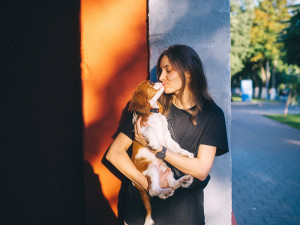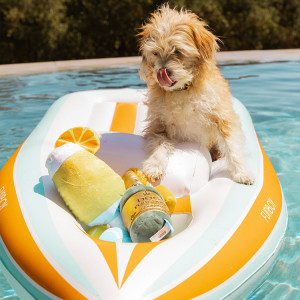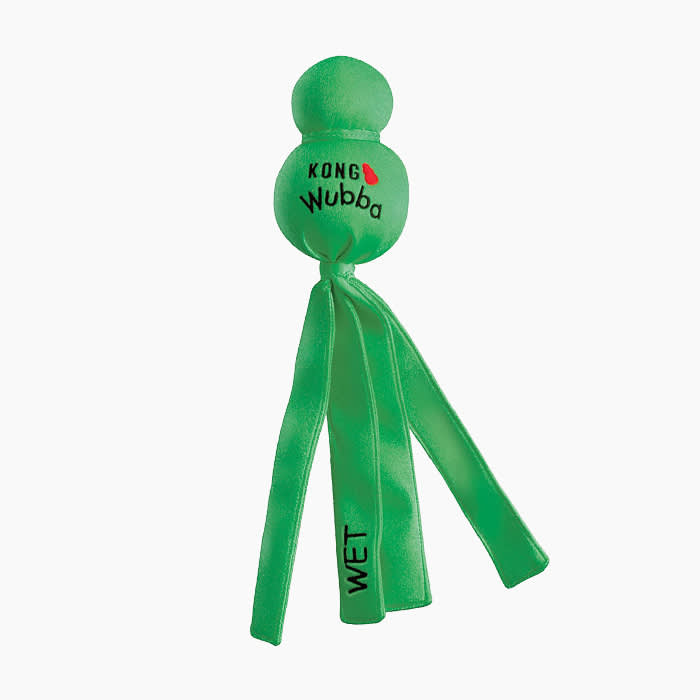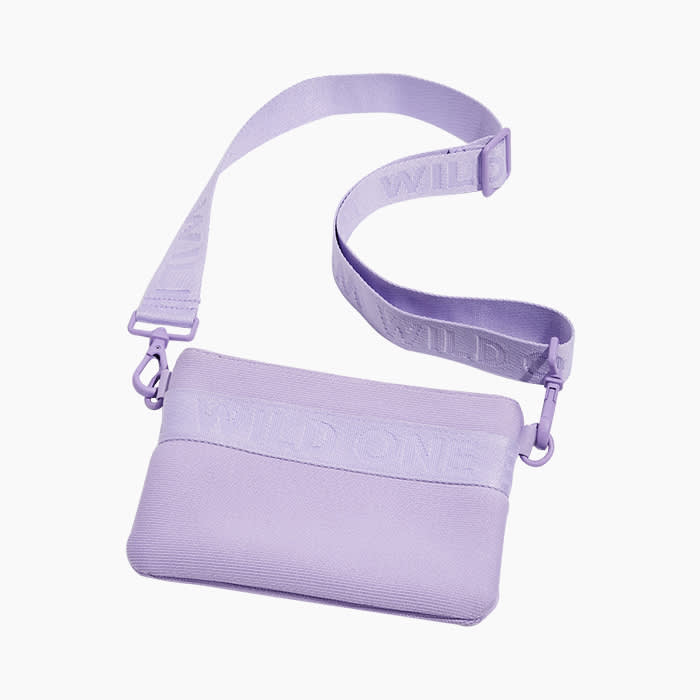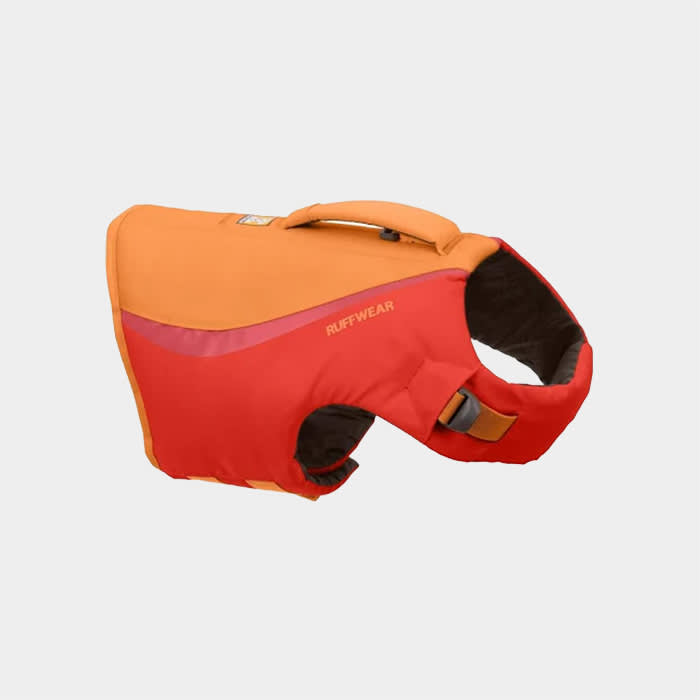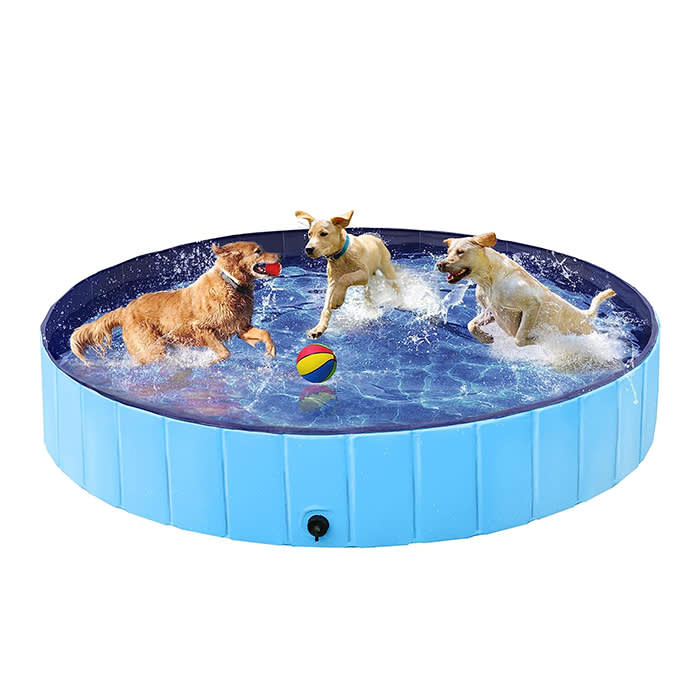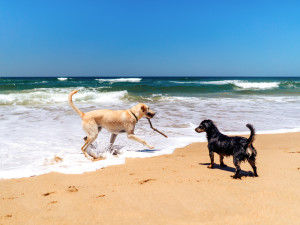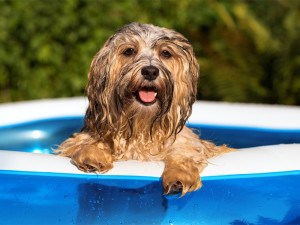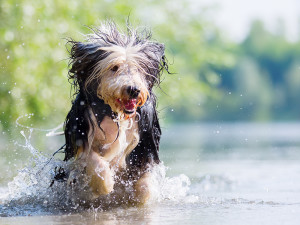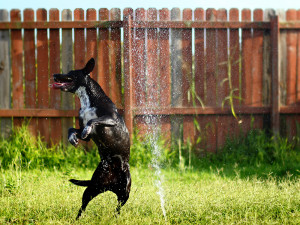How to Turn Your Dog Into a Swim Fan
Get them to master the doggy paddle with these trainer-approved tips.
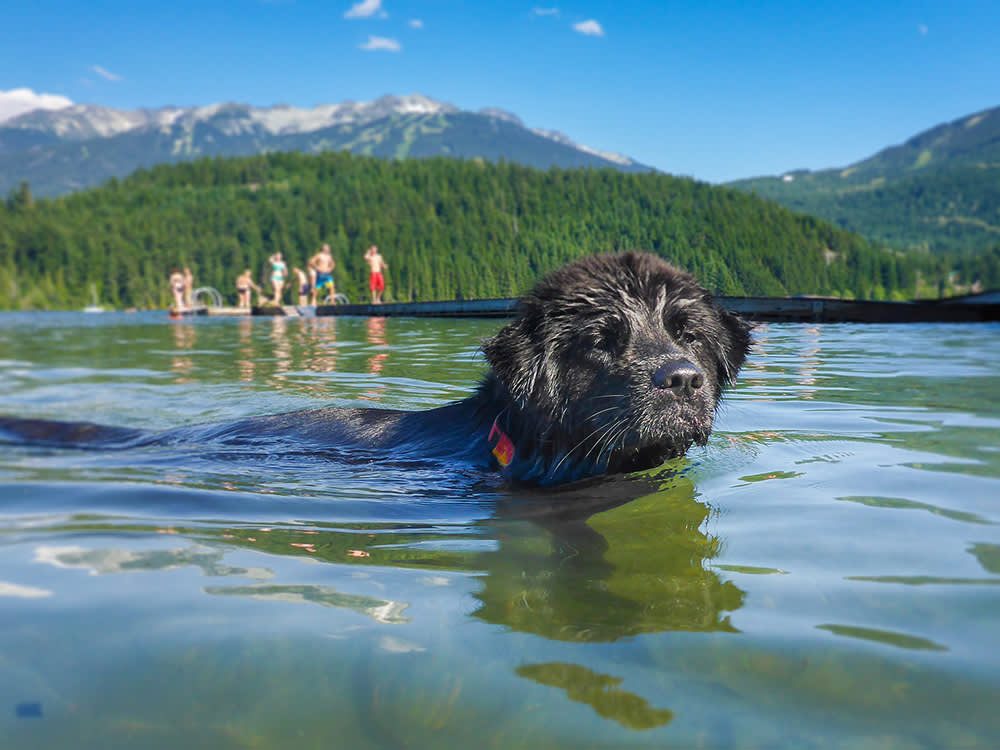
Share Article
Jumping into the pool or lake after a sweaty day in the sun is one of life’s great pleasures, and it’s only natural to want to share the feeling with your pup. But of course, some dogs won’t be quite ready to take the plunge. If you’re looking to help your four-legged friend finally get the hang of the doggy paddle, these tips from dog trainer and dock jumping expert Angelica Steinker, M.Edopens in new tab should help them acclimate to the water.
First of all: Can all dogs swim?
While most dogs should be able to get around in the water with the help of a life jacket, some breeds are better equipped to take a dip than others. Dogs that were originally bred for water retrieval (like Labs and Golden Retrievers) will usually take to the water more than ones whose builds make it difficult to float (like Bulldogs or Dachshunds). With that being said, Steinker has found that some pups are just born with a “water gene,” despite their breed, while others just have no interest in getting in. Giving these water-wary dogs a personal swim lesson is a great way to expose them to swimming in a safe and supportive environment.
How to help your dog get the hang of it.
The secret of any effective swim lesson is positive reinforcement. If you consistently do fun activities in and around the water, your dog should slowly but surely start to gain more confidence swimming. Here are five pro tips to get you started.
1. Safety first.
“A life vest is a very important part of introducing your dog to swimming because you never know if your dog is going to be the one that’s going to sink like a rock,” says Steinker. She recommends giving them a chance to run around in their vest on land first to make sure they’re comfortable moving in it. “If they’re going to have a freezing stress response to a life vest, that needs to be worked through separately before you can introduce your dog to the water,” she notes.

2. Start in a (kiddie) pool if you can.
If you can get your hands on a kiddie pool, Steinker says that those tend to be perfect for getting dogs acclimated to the water since they’re so easy to drain and fill back up. You can place your dog in the empty pool and gradually add water—letting them play with the hose or splash around as you do—until they are surrounded. Smaller dogs will even get the chance to overcome the shock of floating in these small, contained pools.
Once they get used to a kiddie pool, they can move up to a full-sized one next. If you have one in your backyard, be sure to start your dog at the pool exit and turn them so they get experience wading out of the water from every angle. “That way, if they do slip and fall into the pool accidentally, they can orient themselves and they’ll know where to go,” says Steinker. Even after your dog is comfortable swimming, though, you should never leave them in the pool unattended.
Steinker has found that dogs tend to be more fearful of swimming in clear water than they do in murkier beaches or lakes, so starting them in a pool will help set them up for success elsewhere (though a new swimming environment will always take some getting used to).
3. Keep it positive.
To start, your swimming lessons should only include you, your pup, and a favorite toy or treat. Minimizing outside distractions will keep them focused on the task at hand: having fun in the water!
Whether you’re in a kiddle or full-sized pool, try to get in the water yourself to show your pet what a safe and happy swim looks like. If they are wary of wading in, entice them with their favorite toy or treat. And be sure to reward them every time they wade a little deeper or conquer another step down the pool stairs.
If they’re still not interested in getting in, you can always end the lesson and try again tomorrow. The one thing you don’t want to do is lose your cool and nudge or push them into the water; this will only startle them and make them even less inclined to get in. “This is a game that we want to play with our dogs. If you want your dog to play the game with you, they really need to engage in the behavior voluntarily,” Steinker cautions. “And if you do any sort of pushing, it’s not voluntary!”
4. Warm them up.
The secret to a successful swim is warming your dog up beforehand. Have them run around outside to work up a sweat before jumping into the cool, refreshing water.
5. Use the right gear.
Finally, treats and squeaky toys can totally transform a swim lesson. Check out a few that Steinker has seen a lot of success with, and how she uses them, below.
These tips and tricks should help most dogs wade deeper than ever before. But if you’ve tried them all and your pup is still skittish around the water, they may just not be a candidate for swimming. Steinker notes that rescues, in particular, may have an abuse history that makes them water-averse. In that case, she says, “The kindest thing to do is just abort mission.”
Swimming essentials for pool time.
Btw, our editors (and their pets) picked out these products. They’re always in stock at the time we publish, but there’s a chance they’ll sell out. If you do buy through our links, we may earn a commission. (We’ve got a lot of toys to buy over here, you know?)

Emma Loewe
Emma is a writer, editor, and environmentalist based in New York City. She is the senior sustainability editor at MindBodyGreen, the author of Return To Nature: The New Science of How Natural Landscapes Restore Us (April 2022), and the co-author of The Spirit Almanac: A Modern Guide To Ancient Self-Care. Her writing has appeared in Grist, National Geographic, Civil Eats, and Outside Magazine, among others. While she doesn’t have any pets of her own, she is a loving dog aunt to Pip the pup.
Related articles
![Labrador Retriever and Dachsund playing with a stick at the beach shoreline]()
Summer Is Heating Up. Here Are 6 Ways to Keep Your Dog From Doing the Same
Pro tips to keep your pup safe, happy, and exercised during the warmer months.
![a dog in a dog pool]()
The Best Dog Pools For Your Dog to Splash Around in This Summer
It’s summer fun time, baby.
![Black lab swimming in pool]()
How to Keep Your Dog Safe Wherever They’re Swimming This Summer
In the pool, a lake, a river, or the ocean.
![Bearded Collie running in a lake]()
When Drinking Too Much Water Is Deadly
How to keep your swim fan safe.
![Dog-friendly backyard, dog playing in the sprinkler]()
6 Ways to Make Your Yard a Canine Xanadu
Kiddie pools aren’t just for kids!

